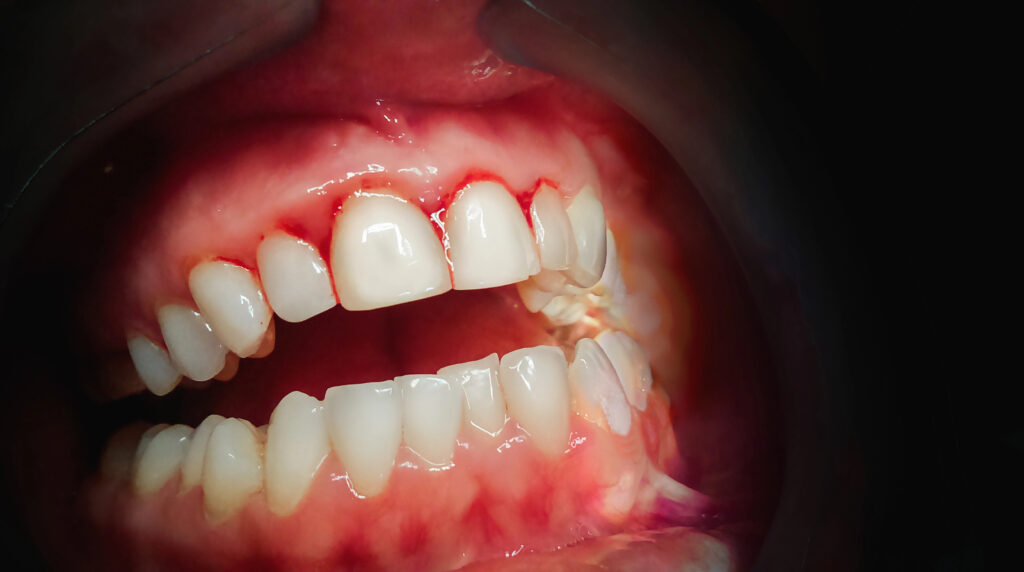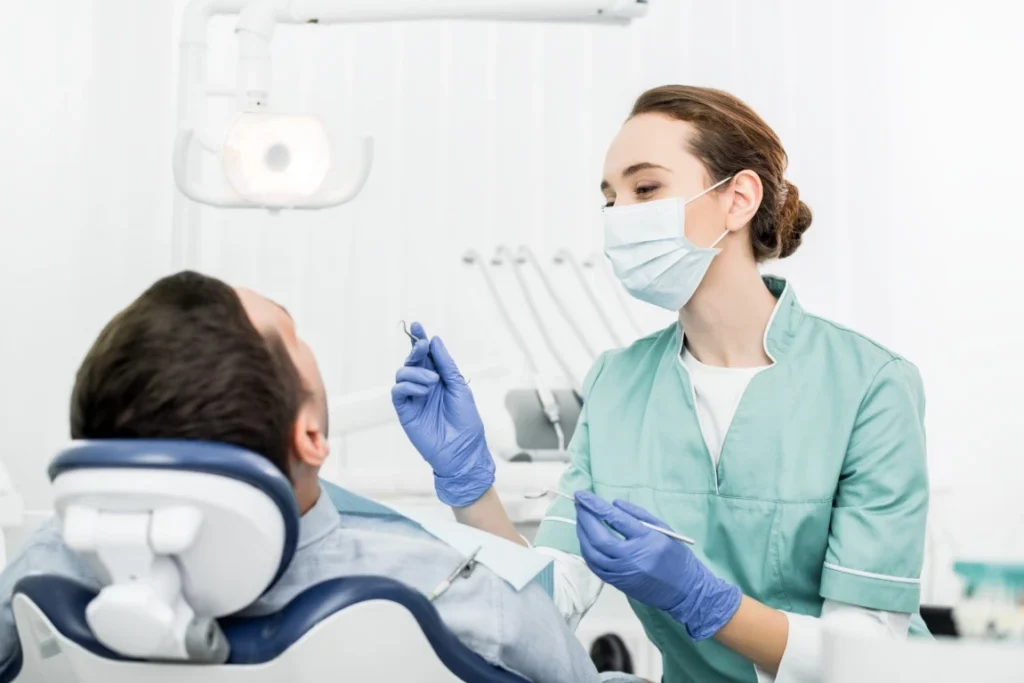
Picture this: You brush your teeth, swish some water around your mouth, and spit it out in the sink. To your surprise, you see streaks of blood in the sink. Maybe you even taste something metallic in your mouth.
While occasional bleeding gums can be concerning, they’re not always serious. However, persistent bleeding could indicate an underlying issue. It’s essential to understand why your gums are bleeding in order to keep your smile happy and healthy.
At the office of Dr. Eric Felt, we want you to take your gum health seriously and know when to seek professional dental care. That’s why we’re presenting this guide to bleeding gums, including common causes and prevention and treatment strategies.
Common Causes of Bleeding Gums
Before you can implement effective treatments for bleeding gums, you must determine why they’re bleeding in the first place. There are many possible causes, including:
Poor Oral Hygiene or Gum Disease
Plaque buildup along the gumline can lead to inflammation and bleeding. Left unchecked, it can escalate into gingivitis, which is early stage gum disease. This further worsens bleeding, swelling, tenderness, and inflammation; however, with proper brushing and flossing, gingivitis is reversible.
Untreated gingivitis, on the other hand, can progress into periodontitis, which is advanced gum disease. In addition to persistent bleeding, periodontitis can lead to bad breath, loose teeth, gum recession, infection, and even tooth loss.

Brushing or Flossing Too Hard
While thorough brushing and flossing are essential, it’s also important to avoid overdoing it. Overly aggressive brushing can damage gum tissue, causing your gums to bleed. Make sure you use a soft-bristled toothbrush and gentle flossing technique to avoid irritation and bleeding.
Vitamin Deficiencies
Believe it or not, vitamin C deficiency can contribute to gum bleeding. Studies have shown that low vitamin C levels in the bloodstream are associated with a higher risk of bleeding when the gums are gently probed. Additionally, if you don’t have enough vitamin K, your blood cannot clot to stop the bleeding, delaying healing.
Hormonal Changes
Hormonal changes can also cause bleeding gums, especially in women. Pregnancy, menopause, and menstruation can make gums more sensitive, increasing the risk of bleeding. This means it’s especially important to ensure proper dental care during hormonal fluctuations.
Medications
Certain medications can increase gum bleeding, including blood thinners and aspirin. It’s important to inform your dentist about all medications you take so they can help you determine whether they’re having an adverse effect on your oral health.
Smoking and Tobacco Use
Smoking weakens the immune system and puts you at a greater risk for infections and gum disease. Quitting is not only good for your overall health — it’s also a great way to safeguard yourself against bleeding gums and protect your oral health.
Underlying Health Conditions
Certain underlying health conditions can cause gum bleeding, including diabetes, leukemia, and other systemic diseases. If you have one of these conditions and are struggling with bleeding gums, it’s important to talk to your doctor and dentist for evaluation.
When to See a Dentist
Everyone’s gums bleed on occasion. Maybe you flossed too hard, or you got something trapped between your teeth that’s causing inflammation. As long as you’re taking good care of your oral health and you don’t have any other symptoms, it’s probably not something to be worried about.
If your gums are persistently bleeding or you have signs of gum disease, it’s time to talk to your dentist. They can diagnose the problem, identify its underlying cause, and provide targeted treatments.

Prevention and Treatment
The good news is that bleeding gums can be treated. With the right care, you can prevent this issue, ensuring your gums remain healthy.
Prevention and treatment strategies include:
- Maintain good oral hygiene: Brush twice a day with fluoride toothpaste, floss daily, and use an antimicrobial mouthwash.
- Adopt a healthy diet: Eat plenty of foods rich in vitamins C and K, along with calcium and antioxidants. Limit your intake of sugary and acidic foods.
- Use the right dental tools: Use a soft-bristled toothbrush and proper flossing technique to ensure you don’t irritate your gums.
- Stay hydrated: Make sure you drink plenty of water throughout the day.
- Quit smoking: Quitting can improve both your gum health and your overall health.
- Regular dental visits: Professional cleanings at your dentist’s office remove plaque and tartar buildup and allow for the early detection and treatment of gum disease.
Visit Eric Felt DDS to Protect Your Gum Health
If you’re struggling with bleeding gums, don’t wait to take action. Schedule an appointment at the office of Eric Felt DDS to improve and maintain your gum health, setting the foundation for bright, healthy smiles.


